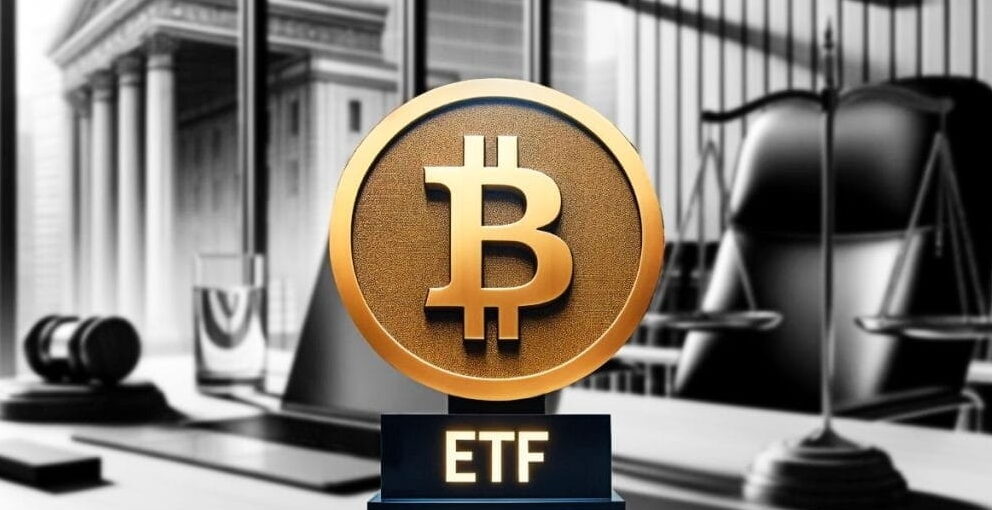The bitcoin ETF approval news impact has sent shockwaves through the cryptocurrency world, fundamentally altering how institutional investors and retail traders approach digital assets. Since the Securities and Exchange Commission (SEC) approved the first spot Bitcoin Exchange-Traded Funds in January 2024. The cryptocurrency landscape has experienced unprecedented transformation. This groundbreaking decision has opened the floodgates for traditional financial institutions. Pension funds. And conservative investors who previously remained on the sidelines of the crypto revolution.
Understanding the bitcoin ETF approval news impact requires examining both immediate market reactions and long-term implications for Bitcoin’s price trajectory, market legitimacy, and mainstream adoption. The approval represents more than just another investment vehicle – it’s a pivotal moment that bridges the gap between traditional finance and the decentralized future of money.
H2: Understanding Bitcoin ETF Approval News Impact on Market Dynamics
H3: Immediate Price Reactions and Volume Surge
The bitcoin ETF approval news impact became immediately apparent as Bitcoin’s price experienced significant volatility following each major announcement. When the SEC approved multiple spot Bitcoin ETFs simultaneously. Trading volumes skyrocketed across major exchanges. With some platforms reporting 300% increases in daily trading activity.

Market makers and institutional traders quickly adjusted their strategies to accommodate the influx of ETF-related trading. The approval eliminated many regulatory uncertainties that had previously deterred large-scale institutional participation Creating a more predictable investment environment for risk-averse financial institutions.
H3: Institutional Capital Inflows
One of the most significant aspects of the bitcoin ETF approval news impact has been the massive capital inflows from institutional investors. Within the first month of trading, approved Bitcoin ETFs accumulated billions in assets under management. Demonstrating unprecedented demand from traditional investment channels.
Pension funds. Endowments. And insurance companies – entities that were previously unable or unwilling to directly hold Bitcoin – gained regulatory-compliant exposure to cryptocurrency markets. This institutional participation has contributed to reduced volatility and increased market depth, making Bitcoin a more attractive asset for portfolio diversification.
H2: Long-term Bitcoin ETF Approval News Impact on Cryptocurrency Adoption
H3: Mainstream Financial Integration
The bitcoin ETF approval news impact extends far beyond immediate price movements. Signaling cryptocurrency’s integration into mainstream financial systems. Major brokerage firms now offer Bitcoin exposure through familiar investment vehicles. Eliminating technical barriers that previously prevented widespread adoption.
Financial advisors can now recommend Bitcoin allocation within traditional investment portfolios. Making cryptocurrency accessible to millions of investors who lack technical expertise in digital wallet management or private key security. This democratization of Bitcoin access represents a fundamental shift in how digital assets are perceived and utilized.
H3: Regulatory Clarity and Future Approvals
The success of initial Bitcoin ETF approvals has created a regulatory framework for future cryptocurrency investment products. The bitcoin ETF approval news impact includes establishing precedents for other digital asset ETFs, potentially paving the way for Ethereum, Solana, and other major cryptocurrency investment vehicles.
This regulatory clarity reduces uncertainty for cryptocurrency developers, exchanges, and institutional service providers, encouraging innovation and investment in blockchain infrastructure. The approval process has also demonstrated that cryptocurrencies can meet traditional financial regulatory standards while maintaining their decentralized characteristics.
H2: Market Structure Changes Following ETF Approvals
H3: Trading Infrastructure Evolution
The bitcoin ETF approval news impact has accelerated the development of sophisticated trading infrastructure designed to handle institutional-grade Bitcoin transactions. Prime brokers, custody solutions, and market-making services have expanded rapidly to meet growing demand from ETF providers and their institutional clients.
This infrastructure development benefits the entire cryptocurrency ecosystem by improving market efficiency, reducing transaction costs, and providing additional liquidity sources. The institutional-grade custody solutions developed for ETF operations have also enhanced security standards across the broader cryptocurrency industry.
H3: Price Discovery Mechanisms
Bitcoin ETF trading has introduced new price discovery mechanisms that complement existing cryptocurrency exchanges. The bitcoin ETF approval news impact includes the creation of additional arbitrage opportunities between ETF shares and underlying Bitcoin holdings, contributing to more efficient price formation across global markets.
These new trading venues have also reduced the influence of any single cryptocurrency exchange on Bitcoin pricing, distributing market-making activities across a broader range of financial institutions and trading platforms.
H2: Investment Strategies in the Post-ETF Era
H3: Portfolio Allocation Considerations
The bitcoin ETF approval news impact has fundamentally changed how investment professionals approach cryptocurrency allocation within diversified portfolios. Traditional asset allocation models now include specific guidelines for Bitcoin exposure through ETF vehicles, typically recommending 1-5% portfolio weights depending on investor risk tolerance.
Modern portfolio theory applications increasingly recognize Bitcoin’s correlation benefits and inflation hedging characteristics, particularly when accessed through regulated investment vehicles. This academic recognition has encouraged broader institutional adoption and research into optimal cryptocurrency allocation strategies.
H3: Risk Management Evolution
Professional risk management practices have evolved to accommodate the bitcoin ETF approval news impact on portfolio construction. Value-at-risk models, stress testing scenarios, and correlation analyses now incorporate Bitcoin’s unique characteristics within traditional risk frameworks.
The availability of ETF vehicles has also enabled more sophisticated hedging strategies, including options and futures contracts based on ETF share prices rather than direct cryptocurrency exposure. These developments have made Bitcoin investment more palatable to risk management committees at conservative financial institutions.
H2: Global Market Implications and Competition
H3: International ETF Development
The success of U.S. Bitcoin ETF approvals has accelerated similar regulatory discussions worldwide. The bitcoin ETF approval news impact extends to international markets, where regulators are reconsidering their positions on cryptocurrency investment products to maintain competitive financial markets.
European, Asian, and other major financial centers are developing their own frameworks for cryptocurrency ETFs, recognizing the potential capital flight to jurisdictions with more favorable regulatory environments. This regulatory competition benefits global investors by expanding access to Bitcoin investment vehicles.
H3: Traditional Asset Class Competition
The bitcoin ETF approval news impact includes increased competition between Bitcoin and traditional asset classes for institutional investment allocation. Gold ETFs, in particular, have experienced outflows as investors reallocate portions of their precious metals exposure to Bitcoin for enhanced return potential.

This shift reflects Bitcoin’s growing recognition as a legitimate store of value and hedge against monetary debasement, challenging gold’s traditional role in institutional portfolios. The ease of Bitcoin ETF trading compared to physical gold custody has accelerated this transition for many institutional investors.
Final Thought
The bitcoin ETF approval news impact represents a watershed moment in cryptocurrency history, transforming Bitcoin from a speculative digital asset into a legitimate institutional investment vehicle. This regulatory milestone has opened the floodgates for traditional financial participation, creating unprecedented demand and establishing new market dynamics that benefit all cryptocurrency stakeholders.
As institutional adoption continues accelerating through ETF vehicles, Bitcoin’s role in global financial markets will likely expand further, potentially reaching the mainstream acceptance that early cryptocurrency advocates envisioned. For investors seeking exposure to this transformative asset class, staying informed about bitcoin ETF approval news impact developments remains crucial for making educated investment decisions.


